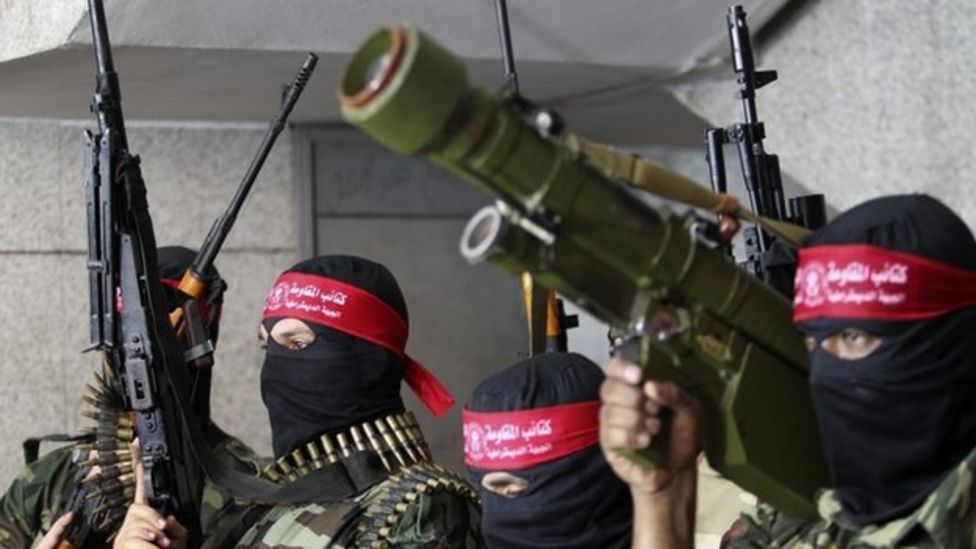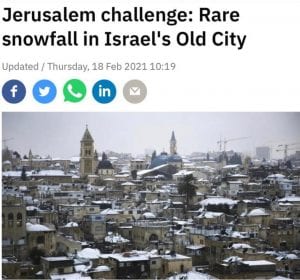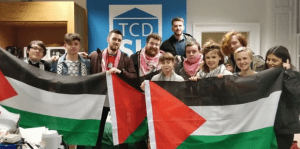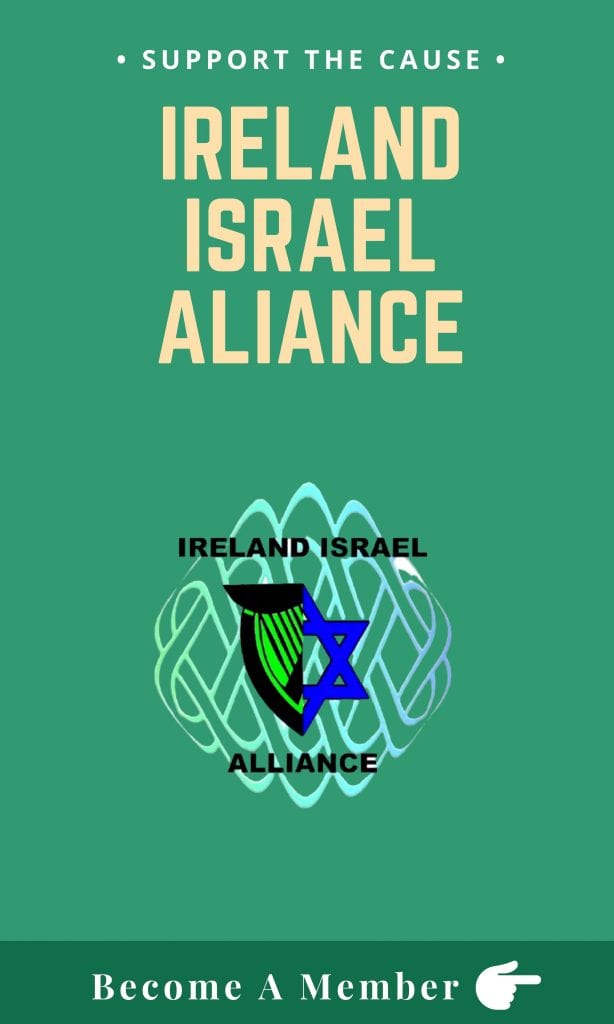The Popular Front for the Liberation of Palestine (PFLP) strongly opposes the peace process with Israel, particularly the ‘Oslo Accords’.
The PFLP stands out for its uncompromising attitude towards Israel, advocates for the continuation of ‘armed struggle’, and aspires for the establishment of a secular Palestinian state throughout the territory of Palestine instead of the State of Israel.
Alongside its organisational and military systems in Judea and Samaria, the PFLP also operates a network of “civilian” institutions in the area, whose goal is to absorb funding from abroad, assist in meeting the PFLP’s needs on the ground, and more. This network is absolutely essential to the terrorist organisation’s functioning, as will be detailed below.

The PFLP’s Network of Institutions:
PFLP institutions operate under the guise of humanitarian aid, and receive funding primarily from Europe. These institutions are the primary source of funds for the financing of the PFLP’s activities at all levels.
The funds that go into the PFLP are the fuel for the organisation’s continued operational, organisational, and infrastructural functioning at all levels.
Within the framework of the investigation that was conducted by the Israel Security Agency (ISA) between March and May 2021, many details were discovered about the way in which the PFLP raised its funds through a network of institutions, chief among them the “Health Committees”, as well as the ways that funds were diverted to the PFLP terrorist organisation.
The investigation centred on an institution known as the “Health Committees”, The institution of the “Health Work Committee”, considered a key institution of the PFLP, operates healthcare centres throughout the West Bank. The stated purpose of the “Health Committees” is to operate medical centers and social services such as childcare, special needs centres for adults, and more.
The investigation also revealed many details about additional PFLP institutions that acted as a network for the absorption of funds for the terrorist organisation, including the Union of Agricultural Work Committees (UAWC), Addameer, the Bisan Center, Al-Haq, the Defense for Children International – Palestine (DCI-P), and the Union of Palestinian Women’s Committees (UPWC).
Please note that the investigation’s most recent findings join a vast amount of information that has been detected in recent years about the PFLP’s activities, and the network of institutions it operates for the purpose of absorbing funds and promoting the terrorist organisation’s activities. During the course of the investigation, one interrogee described the importance of this network of institutions to the PFLP, and stated that “the institutions associated with the PFLP are interconnected, and are the organisation’s economic and organisational lifeline, that is, in terms of money laundering and funding of the PFLP”. Note that the interrogee referred specifically to the designated institutions – the Union of Agricultural Work Committees (UAWC), Addameer, the Bisan Center, Al-Haq, the Defense for Children International – Palestine (DCI-P), and the Union of Palestinian Women’s Committees (UPWC).
Funding and Activities of Other PFLP Institutions:
The projects that these institutions promote – the Union of Agricultural Work Committees (UAWC), the Union of Palestinian Women’s Committees (UPWC), the Bisan Center, DCI-P, Addameer – serve the PFLP’s goals in the fields of education, welfare, health, agriculture, and more. These projects, despite their civilian nature, are used to increase PFLP’s support and influence in the Palestinian population by locating and recruiting new agents, creating commitments among the beneficiaries and recipients of their services, disseminating PFLP messages, and more.
In addition, these institutions serve as a place of employment for PFLP agents, and their offices serve as quarters for PFLP activities. This is an important assignment for those same institutions, as the employment of PFLP agents – including militants – allows them to receive regular salaries, and focus on the missions and activities of the terrorist organisation.
Breakdown of the PFLP Institutions:
Union of Palestinian Women’s Committees (UPWC)
The UPWC is headed by senior PFLP agent Hatam Sa’afin, who serves as an “undercover agent”; other senior figures include Tahrir Jabar Wabla Saadat, the wife of the head of the PFLP, and Ahmad Saadat, both senior members of the PFLP.
This committee is also involved in a significant amount of funding for the PFLP’s activities and the projects it promotes on the ground, including the PFLP’s flagship “Canaan’ and “Hams Almoa’asat” projects, in which the UPWC collaborated with key PFLP institutions detailed in this document.
The UPWC is complicit in forgery and fraud against its European donors, including document forgery. The fraud is executed in cooperation with the Health Work Committee. According to the obtained information, the Health Work Committee “trained” Tahrir Jabar (above-mentioned) in fraud and forgery.
The UPWC itself operates various projects in the West Bank, including projects that serve the PFLP, such as cultural centers, childcare centers, and more. The UPWC’s activities focused on supporting special populations important to the PFLP, such as the families of martyrs and security prisoners who carried out terror attacks against Israel, and more. The profits received from these projects return partially, as revenue, for the UPWC.
Over the years, the UPWC’s offices served the PFLP for a variety of activities not directly connected to the Committee’s declared operations, such as the transfer of funds, instructions, and organisational messages. In addition, the Committee’s facilities were used for a variety of the PFLP’s organisational activities.
Union of Agricultural Work Committees (UAWC)
This institution’s declared goal is to promote projects in the field of agriculture and the development of Palestinian agriculture, but in practice, it is a central PFLP institution, subject to the PFLP’s leadership in the West Bank, and serves as a significant source of funding for the PFLP.
The undercover officials were, until their arrest, PFLP agents Ae Razak Faraj and Samer Arbid – both members of the militant infrastructure that executed terrorist attacks in the West Bank, including the terrorist attack of August 2019 in which Rina Shnerb was killed, and her father and brother injured. Even after their arrest, however, the PFLP leadership maintains total control of this key institution.
This institution received millions of dollars’ worth of donations from Europe (the Netherlands, Belgium, Spain, Norway, and more), and simultaneously carries out fraud and forgery against European donors using similar methods to those mentioned above in connection with the Health Work Committee.
This institution operates a wing in the Gaza Strip, a “mirror institution” which is known by the same name.
PFLP organisational activities took place in the Committee’s offices, with no connection to the agricultural projects that the organisation claims to promote.
Addameer
This is a PFLP institution established by senior members of the organisation in order to care for PFLP security prisoners and their families. These are security prisoners, some of whom have carried out gravely serious terrorist attacks against Israel.
Addameer is a highly significant institution for the PFLP’s power-building. Its establishment was designed to convey a message to PFLP agents in particular, and to the Palestinian population in general: that the PFLP does not abandon those who have carried out terrorist attacks in Israel, but rather rewards them and their families and cares for their wellbeing.
This institution carried out public activities in order to express support for PFLP prisoners and leaders, and at these events, it is customary for senior PFLP members to participate and for PFLP symbols to feature prominently.
The institution is subordinate to the PFLP leadership in the West Bank. It is headed by PFLP agent Saher Francis. Most of the institution’s employees are prominent and well-known PFLP agents, such as Yaakov Judah, Eli Jardat, Tsamud Saadat, and other senior PFLP members.
The institution is a partner to major PFLP projects, and its agents are also involved in PFLP organisational activities that are not directly related to the institution, such as communicating messages and instructions between PFLP prisoners in jail; this is a significant contribution to the PFLP’s operational activities.
The institution’s offices also serve PFLP activities that are not directly related to the institution’s role, including meetings in which members of the PFLP leadership participate. Note that, in the Gaza Strip, a “mirror institution” operates which is known by a similar name and whose activities are also similar.
The Bisan Center
This is a key PFLP institution which is subordinate to the PFLP’s leadership in the West Bank.
This institution focuses on preparing position papers and studies that express the PFLP’s positions, and are designed to disseminate the PFLP’s ideology.
The undercover figure responsible for the institution, until his arrest, was Aatraf Rimui, a member of the militant infrastructure that carried out terrorist attacks in the West Bank, including the August 2019 attack in which Rina Shnerb was killed.
Document forgery and fraud were carried out at this institution against European donors, in cooperation with the health committees. This institution’s CFO is Riyad Aldisi, a PFLP agent.
This institution is a partner to major PFLP projects, such as the “Five Institutions” project together with the UPWC and other institutions that are members of this network and detailed in this document.
PFLP activities which are not related to the institution’s mission are carried out at the Bisan Center’s offices, including meetings participated by organisational and militant agents of the PFLP.
Al-Haq
This is a PFLP institution; all of its agents are PFLP agents, at the head of which is senior PFLP member Shawan Jabarin.
During the course of the institution’s ongoing work, Jabaran met with PFLP agents in different districts.
It must be emphasised that Al-Haq refrains from publicly presenting its affinity with the PFLP and even denies all claims regarding any such link as part of a conscious and informed choice designed to preserve its funding sources and prevent any damage to the institution’s credibility in the eyes of the international community.
Al-Haq has received donations from several European countries in the past.
This institution focuses on initiating action against Israel in the international arena, and acts in accordance with the PFLP leadership’s directive; they see this activity as strategically important in the fight against Israel, and as a complementary measure to the organization’s armed struggle.
Defense for Children – Palestine (DCI-P)
This institution’s declared purpose is to publicise – through media outlets – cases in which children and youth were harmed as a result of IDF and Israeli activities.
This is an institution that is fully controlled by the PFLP, and which is headed by senior PFLP members George Abu Zolof and Khaled Khozmar; all of its agents are PFLP members.
The institution receives funding directly from the Netherlands and other countries.
The institution is a partner to the PFLP’s flagship projects, together with the other institutions in the network detailed in this document; key among them are the “Canaan” and “Five Institutions” PFLP projects.
Summary
These designated PFLP institutions are a critical component in the terrorist organisation’s ability to operate.
The total control wielded by the terrorist organisation in these designated institutions manifests itself on many levels, such as:
– The institutions being fully controlled by PFLP leadership and act under its supervision and in line with its instructions;
– senior PFLP members hold key positions in these institutions;
– PFLP agents are employed and paid a salary at these institutions, including the organisation’s militants; – the institutions serve to absorb a high amount of funding and divert it to the organisational and militant activities of the PFLP, as well as to carry out projects on the ground that serve the terrorist organisation’s goals; –
the heads of the institutions take part in the terrorist organization’s activities and events, including public events in which the terrorist organisation’s symbols feature prominently; – organisational activities take place at the offices of these institutions – activities which are not related to the declared objective of the institutions; –
close cooperation is maintained between the institutions, which operate as an organised and coordinated network;
– these institutions were identified as belonging to the terrorist organisation by a wide variety of informational sources; and more.
By Editorial




